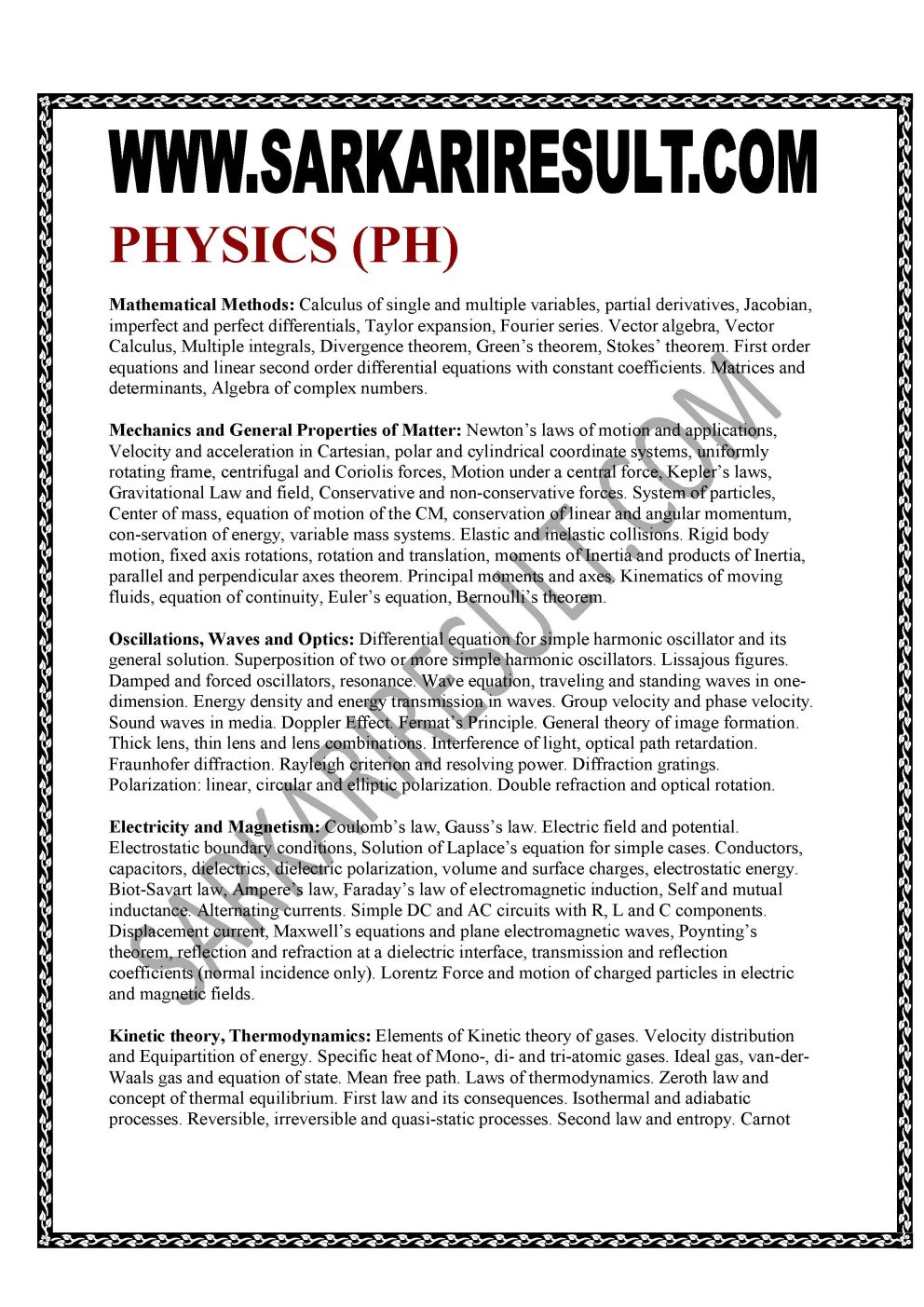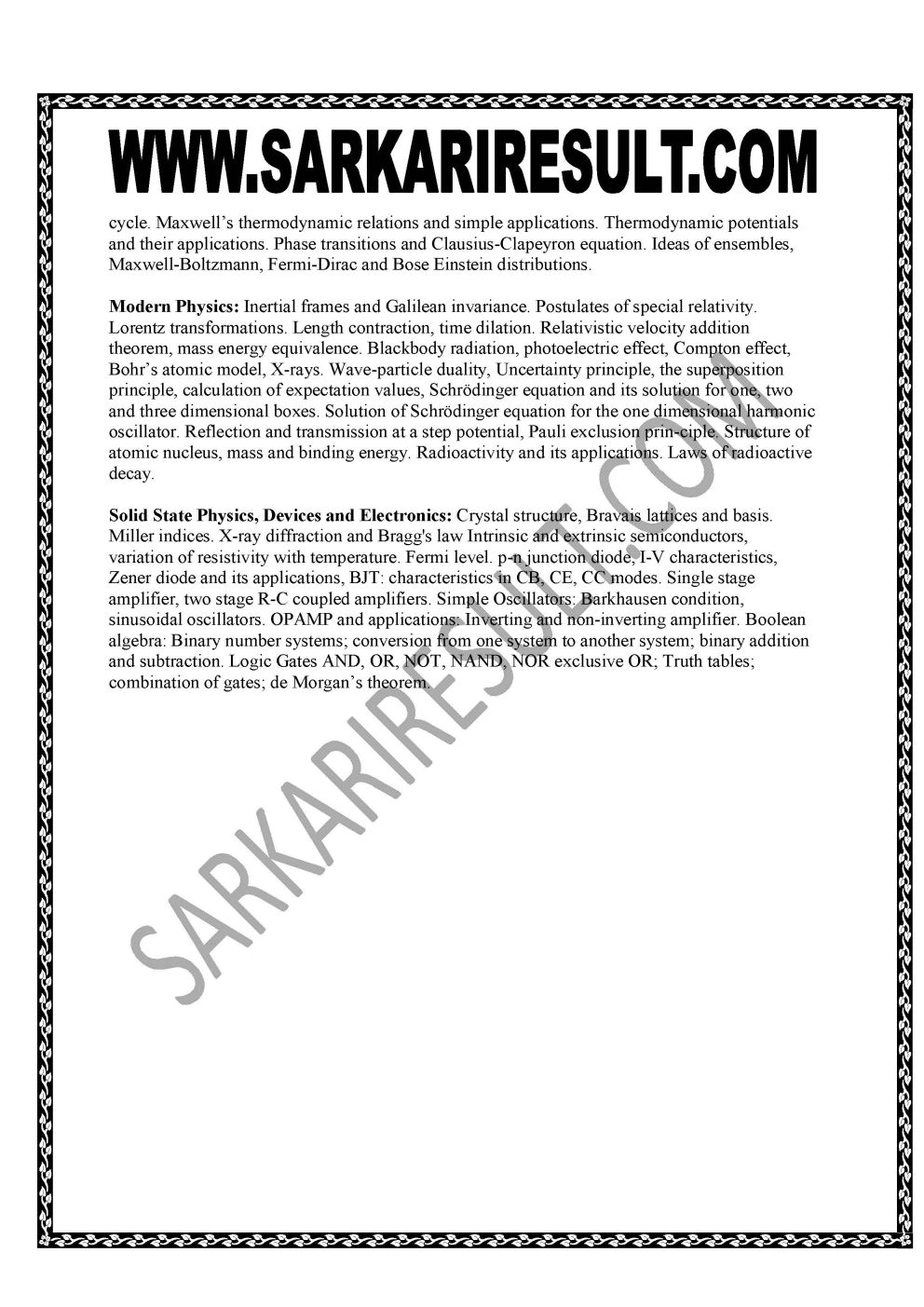|
#2
20th September 2014, 02:19 PM
| |||
| |||
| Re: IIT JAM Physics Details
You are looking for IIT JAM Physics detailed syllabus I am giving here: Mathematical Methods : Calculus of single and multiple variables, partial derivatives, Jacobian, imperfect and perfect differentials, Taylor expansion, Fourier series. Vector algebra, Vector Calculus, Multiple integrals, Divergence theorem, Green’s theorem, Stokes’ theorem. First and linear second order differential equations. Matrices and determinants, Algebra of complex numbers. Mechanics and General Properties of Matter : Newton’s laws of motion and applications, Velocity and acceleration in Cartesian, polar and cylindrical coordinate systems, uni*formly rotating frame, centrifugal and Coriolis forces, Motion under a central force, Kepler’s laws, Gravitational Law and field, Conservative and non – conservative forces. System of particles, Centre of mass, equation of motion of the CM, conservation of linear and angular momentum, conservation of energy, variable mass systems. Elastic and inelastic collisions. Rigid body motion, fixed axis rotations, rotation and translation, moments of Inertia and products of Inertia. Principal moments and axes. Kinematics of moving fluids, equation of continuity, Euler’s equation, Bernoulli’s theorem. Oscillations, Waves and Optics : Differential equation for simple harmonic oscillator and its general solution. Superposition of two or more simple harmonic oscillators. Lissajous figures. Damped and forced oscillators, resonance. Wave equation, traveling and standing waves in one – dimension. Energy density and energy transmission in waves. Group velocity and phase velocity. Sound waves in media. Doppler Effect. Fermat’s Principle. General theory of image formation. Thick lens, thin lens and lens combinations.   |